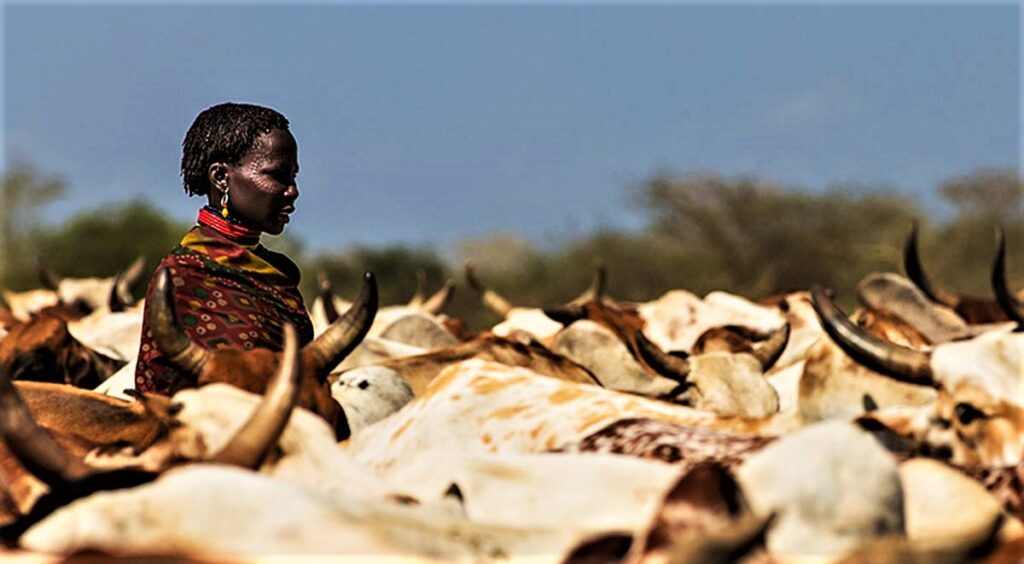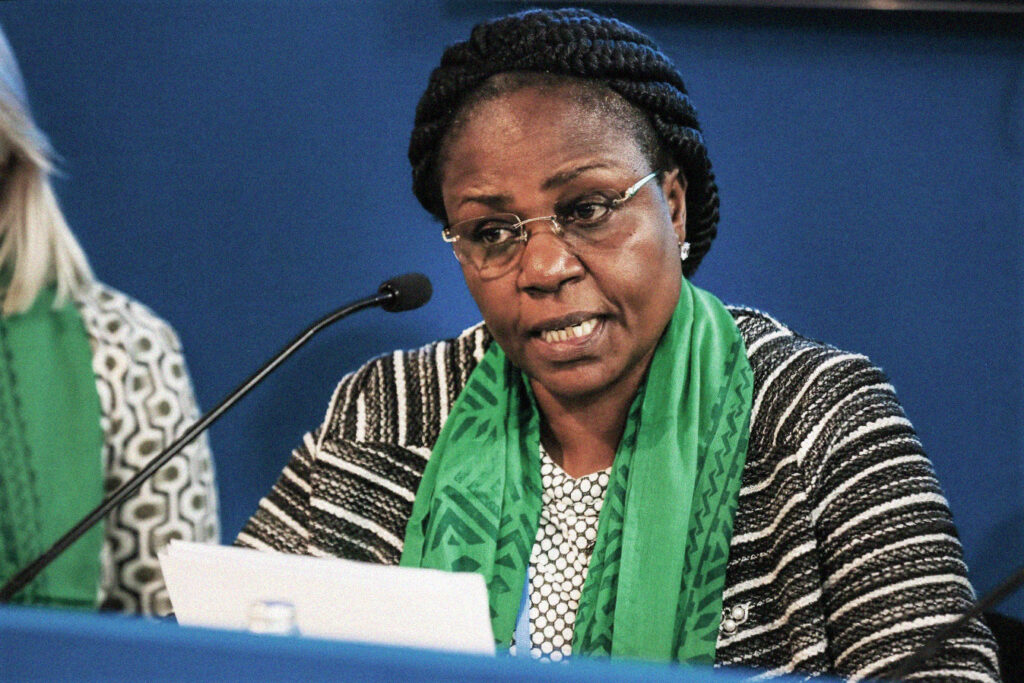The life of the Karamojong in North-Eastern Uganda is a culture of livestock. Just about every aspect of their livelihood is sustained by cows and goats. In addition to being a primary source of protein—milk, blood, meat—the animals are also traded during marriage, and are an asset that can be exchanged to fund education and other necessities. Due to their inherent way of life as pastoralists, coupled with the low and unreliable distribution of rainfall, the Karamojong hardly depend on subsistence agriculture. When famine strikes, like it often does, the animals are sold for food. As such, the Karamojong derive great pride and fulfilment in owning vast herds. On the flipside, however, this sets the perfect stage for cattle raiding gunfights!

In the past decade, the Ugandan government has severally instituted disarmament exercises aimed at curtailing rustling wars that have over the years left scores dead. The most recent campaign commenced sometime in 2021. To get this program rolling, the Office of the Prime Minister (OPM) under which the Ministry of Karamoja Affairs sits, got the approval of an estimated $10m from the Ugandan Parliament for the purchase of 100,000 iron sheets. The roofing material was to not only incentivize the armed youth to give up their arms, but was also part of a larger consignment to provide some much-needed relief to the communities grappling with abject famine.
Alas! Somebody in the OPM seemed more ambitious for themselves than for the vulnerable people of Karamoja. None of the material ever reached its intended destination. If you don’t already know this, the OPM isn’t new to this nature of vile behavior. As a matter of fact, this office has got a pristine CV of thieving accomplishments whose sum of financial loss could fund the national budget for a number of years. Let’s just put it this way: if Kampala is the financial capital of Uganda, the OPM is the corruption capital. Over here, helping oneself to public resources isn’t news. The real news is for an entire year to go by without the OPM getting cited in some scandalous incident. This is the sort of sheet we deal with everyday!
It’s for this reason that the Minister for Karamoja Affairs, Honorable (or dis-Honorable, for that matter)—Ms. Mary Goretti Kitutu, who is alleged to have made away with 3,000 sheets, is spending her Easter holiday in prison. As a former Minister for Environment, I’m quite confident she’ll not have issues adjusting to the jail environment!

With these kinds of unpolished leaders in high offices, it’s not particularly surprising that good service delivery is a thing that many Ugandans only dream of. Moreover, if they ever wake from such improbable dreams and some service miraculously trickles down, it’s usually tragic. Shabby at best! Ask the people in Namuwongo and the Bugolobi Industrial Area about their hellish roads. Tell you what: as it was with the fable of the tortoise and the hare, the winner takes their time while driving in Kampala. The loser brisks through and ends up spending a fortune at the car repair shop!
Even as the hunger-stricken and impoverished Karamojong continue to languish in spells of calamity, it’s a no-brainer that we’ll be witnessing a touch of deja vu when some of the people complicit in this criminal conspiracy walk away scot free. Typically, that’s the life-cycle of a corruption saga in this republic: money changes hands, a whistleblower sounds the alarm, the band of thieves pick a sacrificial lamb, and somehow the masterminds get to squirrel out of trouble, and that’s the end of that. Right there is how the crooked prongs of our justice system work. When the next scandal happens, press repeat!

The summation of all of the above is generally why life in Uganda will put you through the wringer. Whereas life as we’ve known it is that period of functional existence between birth and death, in this place, the definition gets a little bit radical. Here, life seems to be that period between birth and death where the thieves thrive and only leave what’s enough for the rest of you to scrape by.
The statistical estimate that is life expectancy approximates the average that a specific demographic is expected to live. One of the parameters for determining life expectancy is mortality: what sort of things are likely to hinder your longevity once you’re birthed into this chaotic place. Things like infant mortality, location, gender, socio-economic factors et al. As it stands, the average Ugandan is expected to live for about 64 years. This is the lowest in the region and, arguably, leadership choices play a pivotal role in its definition.

Additionally, although Uganda is said to have some of the happiest and friendliest people on the planet, global rankings do not seem to suggest the same, as nowhere in the top 20 do we feature. Subjective as such stats may be, it’s possible that the cataclysms of a dysfunctional national administration are actually taking a massive toll on many Ugandans, as they are regularly burdened with plenty of troubling sheet originating from the highest offices in the land!
Finally I get the end of the story thanks.
Haha That sounds like it was a long wait! Thanks for reading!